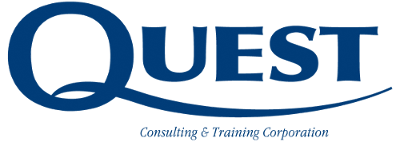Did you read Homer’s Odyssey when you were school? My son just did, and he told me how Mentor, Odysseus’ beloved friend, was entrusted with educating and training Telemachus. “That’s what you’re always talking about, Dad,” he said, “Mentor.”
Derived from this ancient Greek tale, the word mentor became synonymous with an older person who is the wise and trusted advisor, coach and guide to a younger person.
In the American corporate world, the term has been applied to any well-placed executive who grooms a younger person for a particular career success, usually in upper management. The roles of sponsor and protector have become primary in mentoring, too.
Many corporations have added planned mentoring programs to this spontaneous activity. These corporations have assigned the tasks of advising, coaching and guiding to selected supervisory and management personnel. And have assigned the role of protégés to selected junior personnel. Planned mentoring acknowledges that employees benefit from guidance, and that most employees have much to offer more junior employees.
As companies have extended themselves toward retaining good employees, some have added the role of career coach to all supervisory and management job definitions. A career coach acts in a limited mentoring role by offering each employee advice and coaching on:
- Job related skills
- Career advancement skills
- Integration of life and career
- The company “ropes” in any area necessary.
The roles of sponsor and protector which are integral to “spontaneous mentoring” are inappropriate to a career coach, who is responsible for offering guidance to all direct employees. Sponsorship and protection are also excluded from planned mentoring program that focus on coaching, guidance and resources.
Knowledge management, especially in high-technology companies, has also been incorporated into the mentoring role. Mentoring provides a means through which technical expertise can be transferred from experienced, high-performing individuals to less experienced personnel. In this context the mentoring pair chooses to focus on technical skills and knowledge transfer rather than upward mobility. This sharing of knowledge and broadening of expertise has provided a high level of employee satisfaction in situations where layoffs and general flattening of an organization have prevented mobility.
In a teamwork environment, mentoring can provide an effective tool for communicating corporate goals and values.
Planned mentoring is a flexible, management-driven action-oriented process that can help your company adjust to the rigors of the 21st century.
If you are considering adopting a planned mentoring program, here are a few questions to ask..and answer:
- What place would mentoring have in your overall management plan?
- Who would be involved?
- What would be the key success factors?
- Who would identify protégés and how would they do so?
- Who would identify mentors and how would they do so?
- How would mentor/protégés pairs be matched? By whom?
- Would mentoring be a formal or informal process?
- How would it be monitored?
- Would it be a time-limited process (say, an initial one year)?
Mentoring is an excellent way to perpetuate success. Your leaders will help you develop new leaders. It is a win-win situation with very little downside.
To discuss what mentoring could do for your organization, along with some suggestions on how to set up a mentoring program, drop us a line at info@questcorp.com or give us a call at 1-800-481-2914.
